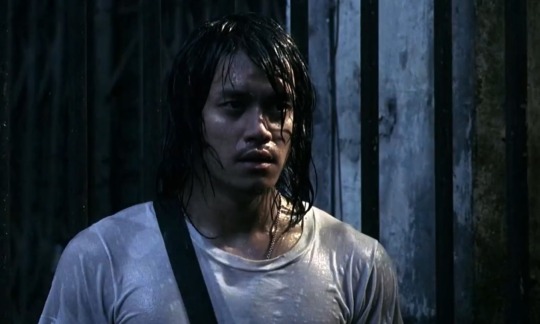#guru 2007
Explore tagged Tumblr posts
Text


'nana re, nana re, nana re, nana re...' — barso re | guru, 2007, dir. mani ratnam.
#film: guru (2007)#guru#guru 2007#aishwarya rai#aishwariya rai bachchan#aishwaryaraiedit#bollywood#bollywoodedit#bollywoodgifs#filmedit#asiancentral#asiansincinema#dailybollywoodqueens#smudgedhenna#southasiansource#iheartmastani#baawri#weheartbollywood#dailyworldcinema#hindi cinema#userdivides#userfilm#filmgifs#dailyflicks#cinematicsource#cinematv#tvandfilm#fyeahmovies#mani ratnam#don't ask me if these colors are consistent. i spent over eight hours staring at them when i first made this idk atp
517 notes
·
View notes
Photo



GURU (2007) dir. Mani Ratnam
#guru#bollywoodedit#moviegifs#romancegifs#userfilm#filmtvcentral#usersakshi#baawri#usernanda#usercharithra#useryoshi#tuserliliana#usershreyu#asiandramasource#cinemapix#singinprincess#userthing#aishwaryaraiedit#abhishekbachchanedit#*ours
99 notes
·
View notes
Text


Aishwarya Rai in Guru (2007)
160 notes
·
View notes
Text
GMMTV 2025
This year I had discussed two of my greatest peeves with GMMTV:
Lack of BL literacy and harrowing learning curve
Khujin paradox – it is their asset and liability
here & here
Having seen what GMMTV plans to offer in the year 2025, I have to admit that they might be on the right track.
Ticket To Heaven – I didn’t expect this. What percent of Thailand’s population is Christian? (Thailand has significant and influential Christian population.) Many frames and scenes in this one looks they were from the Japanese BL movie from 2007 Boys Love – School Boy Crush. Serendipitously, it is so similar to Jijo Kuriakose’s autobiographical queer film — Velipaadu (വെളിപ്പാട്) which also has seminarian main characters. But since the characters are Orthodox/Jacobite Christians but not Catholics there is additional compulsory heterosexuality.
Memoir of Rati – Most Beautiful Count colorism debacle has tarnished my love for Thai historical setting. This is one series where I really wish GMMTV did not stick to the nenja/wakashu style pairing. Yaoi revolution did not happen all those years ago for this to manifest in 2024-25. These aesthetic choices are something GMMTV and Change 2561 (among others) will learn to overcome. Eventually.
Me and Thee – I am not impressed by the choice of khujin for this role. The comedy is not working for me and I think that's probably because there is not enough gap moe between the actor playing the mafia boss and the mafia boss playing the actor. However, fans of this khujin might enjoy it immensely for the very reason. Love guru set up is underplayed, so I am expecting tonal shift half way through the series where the drama will play into the soap opera it is supposed be parodying. Some kidnapping and bloodshed maybe. Odo (royal road progression) is odo for a reason. Unintended consequence of the series was to remind me of my dearest wish to see unabridged version of Breath, the story of TulHin from Love By Chance 2) with shibari and all.
A Dog and a Plane - feels like a nice mix of Japanese BL Ossan’s Love: LOVE or DEAD and Ossan's Love: In the Sky and Cornered Mouse Dreams of Cheese. Since I thoroughly enjoyed both, I'm looking forward to this one. It also promises a lot of "wife-chasing" (My Stand-in's influence?) complete with a grand, lives-saving, heart-winning gesture.
Magic of Prophecy - Fortune telling as a reason for forced proximity in provincial Thailand seems nice but I'm afraid the series is going to go where The Sign went with superstitious local folks (as opposed to rational main characters, except it was a fantasy show hinging on those very local people's faith and festival) and gun violence. BL being a vehicle for Thaification is kind of inevitable but I wish it wasn't so and we would get more provincial shows like Love Poison. For a country that dared to give us Tropical Malady (2004) directed by Apichatpong Weerasethakul and Malila: The Farewell Flower (2017) directed by Anucha Boonyawatana (director of Not Me), their BL needs to do better.
Boys in Love - honor student x diliquent is a beloved pairing but this neurotypical honor student is not sitting well with me at the moment thanks to Iwashiro from Outsider Communication by Natsume Tsuno overwhelming my brain. But that is a me problem. The other pairs are cool and is in line with the saccharine sweetness GMMTV is known for.
Cat for Cash - this is for that khujin's fans as well as for cat lovers. Surrealist comedy with glittering, sputtering succulents in Love is Like A Poison has raised my tolerance for this brand of romantic dramedy.
Mu-Te-Luv - I am intrigued because it gives me the kind of feeling that I got when I watched the trailer for Hello Mummy. I wonder how Thai audience will receive this series' take on the non-romantic themes it deals with. So, I'm equally apprehensive and excited.
Love You Teacher - surprisingly it is Thailand that managed to get this show going. De-aging is a popular trope in BL and fan-fiction. Given the taboo nature of de-aging as a set up it is hard to pull off. But, if anyone can do that it is Thailand. This is resourceful side of khujin - they can't take the jado (evil road) narrative progression. No twisted moe. Yet, it leaves space for deception. Faking or automatic de-aging to cope with repressed stress and anxiety, like selective mutism and amnesia. It will be about character growth and unconditional love. Otherwise, the price GMMTV would have to pay would be too steep.
Melody of Secrets - wow, a dark take on amnesia trope! Seems like GMMTV finally figured out how to tease a jado progression within an odo plot - by employing a (faux)-look-alike so as not to upset khujin fans' worldview while offering them a thrilling experience. But it is clear that GMMTV won't be able top commit to a proper jado plot. That not their brand. It will not help with branding and advertising. There's no helping it. The violin scene reminded me of the Japanese BL with numerous adaptations Fujimi Orchestra. Also, the mind-forgot-but-body-remembers trope?!
My Romance Scammer - gold digging, getting ONESELF trapped in the love trap that one laid and marry-first-regret-later tied with the friction of getting a divorce. I want it to have first ever remarriage of the same pair in a live action BL.
That Summer - how does Thailand keep getting casting net wrong? At least it is better than diving with the net we're got in love sea. Prince? Who was assaulted? Found at a Thai beach? Reminds me of princess Latifa bint Mohammed Al Maktoum debacle.
Only Friends: Dream On - I like this set up more than the one for season 1. I wasn't happy about it and thought they could do better. I'm looking forward to this season. And for khujin fans, isn't it a good chance to enjoy netorare and stalking horse tropes since the Love Dodecahedron will anyway resolve into khujin pairings?
Burnout Syndrome - super pretty, shonen ai style art! Look at the nude he drew! Isn't it giving early BL vibes, from before the donkey dicks took over the BL manga scene thanks to Korea? Isn't it a beacon (please forgive the pun) of hope in the strange, new world of uncensored smut scenes in BL manhwa? Khujin's gonna khujin and stalking horse gonna stalking horse. I'm truly intrigued.
Head 2 Head - fine old wine, new bottle. Let's see if the wine (rivalry to romance, unrequited to required, college campus setting) can be as intoxicating when drunk from the new bottle.
Dare You To Death - Channel V style drama with khujin boarding together for reasons. Unfortunately, it did not moe for me. Maybe because I'm still trying to get over Zheng Bei x Jiang XiaoHai ship from The First Shot 雪迷宫 that paled in comparison to Zheng Bei x Gu YiRan ship. Honestly, I started watching just to listen to Huang Jingyu say heroin (hailouyin) and accidental got too invested in the cop x kingpin ship.
I wonder who suggested GMMTV to add so much of occult and fortune-telling in their series. Also, I am a little worried after seeing this post by @guzhufuren and this post by @alwaysthepessimist - there is opposition to BL in East Asian countries led by certain groups of feminists based on the disproportionate benefit accruing to men (especially actors, voice actors, creators and production companies' executives), declining presence of women in entertainment and advertising as well as shifting purchasing power from women to men through consumption of BL.
youtube
In this video, BL scholar Kim Hyojin talks about Boys Love in an Era of Feminism: Online Discourse on “Leaving BL” in Late 2010s Korea.
#gmmtv 2025#thai bl#gmmtv bl#gmmtv#bl 2025 line up#Dare You to Death#JongDunk#Boys in Love#Memoir of Rati#GreatInn#My Magic Prophecy#JimmySea#Me and Thee#PondPhuwin#A Dog and A Plane#TayNew#Cat for Cash#FirstKhao#That Summer#WinnySatang#Head 2 Head#SeaKeen#Ticket To Heaven#geminifourth#Burnout Syndrome#OffGun#Melody of Secrets#ForceBook#Only Friends Dream On#Dare You To Death
46 notes
·
View notes
Text



Val Edward Kilmer [Val Kilmer]
(December 31, 1959 – April 1, 2025) was an American actor.
Kilmer was a big star in the 1980s and 1990s. first came to fame with his roles in Top Secret! (1984) went on to star in a number of high profile films including Among his best known roles is in Top Gun, as the antagonist Iceman opposite Tom Cruise (1985)
Tombstone (1993) and Batman Forever (1995). He was one of the best paid actors in Hollywood during the 1990s.
Kilmer stared in the biographical depiction of 1960s rock band singer Jim Morrison aka the 'Electric Poet' The Doors (1991)
He took over from Michael Keaton in the role of the caped crusader in Batman Forever (1995), Joel Schumacher film, opposite Nicole Kidman, Jim Carrey and Tommy Lee Jones. a film which performed very respectably at the box office.
He reprised the character in the 2022 sequel Top Gun: Maverick in an emotional scene in which his character was afflicted with the same cancer, and couldn’t use his own voice to speak.
Movies / Tv Appearances
2024
How to Rob a Bank · as Chris Shiherlis (archive Footage)
2022
Top Gun: Maverick · as Adm. Tom 'iceman' Kazansky
2021
The Birthday Cake · as Uncle Angelo
2020
Paydirt · as Sheriff Tucker
2020
A Soldier's Revenge · as Cj
2019
Jay and Silent Bob Reboot · as Bluntman
2019
Cinema Twain · as Mark Twain
2019
1st Born · as Biden
2017
The Super · as Walter
2017
The Snowman · as Rafto
2017
Song to Song · as Duane
2014
Tom Sawyer & Huckleberry Finn · as Mark Twain
2014
The Spoils of Babylon (TV Series) · as General Cauliffe
2013
Palo Alto · as Stewart
2013
Ghost Ghirls (TV Series) · as Sweetriver Jackson
2013
Standing Up · as Hofstadder
2013
Planes · as Bravo (voice)
2013
Riddle · as Sheriff Richards
2012
The Fourth Dimension · as Hector
2012
7 Below · as Mccormick
2012
The Roadie
2012
Wyatt Earp's Revenge · as Wyatt Earp
2012
Breathless · as Dale
2012
Deep in the Heart · as The Bearded Man
2011
B'Twixt Now and Sunrise · as Hall Baltimore
2011
5 Days of War · as Dutchman
2011
Blood Out · as Arturo
2011
Kill the Irishman · as Joe Manditski
2010
The Traveler · as Mr. Nobody / Drifter
2010
Gun · as Angel
2010
MacGruber · as Cunth
2010
Bloodworth · as Warren Bloodworth
2009
Double Identity · as Dr. Nicholas Pinter
2009
Hardwired · as Virgil Kirkhill
2009
Cabeça a Prêmio · as Wanted Man
2009
The Bad Lieutenant: Port of Call - New Orleans · as Stevie Pruit
Pruit
2009
The Thaw · as Dr. David Kruipen
2009
American Cowslip · as Todd Inglebrink
2009
Streets of Blood · as Detective Andy Devereaux
2009
The Steam Experiment · as Jimmy
2008
Delgo · as Bogardus (voice)
2008
XIII: The Conspiracy (TV Series) · as La Mangouste
2008
2:22 · as Maz
2008
Columbus Day · as John Cologne
2008
Felon · as John Smith
2008
The Love Guru · as Val Kilmer (uncredited)
2008
American Meth · as Narrator
2008
Knight Rider · as K.i.t.t. (voice)
2008
Knight Rider (2008) (TV Series) · as Kitt (voice)
2008
Conspiracy · as Macpherson
2008
Comanche Moon (TV Series) · as Inish Scull
2008
Unconquered; Allan Houser and the Legacy of One Apache Family · as Narrator
2007
A West Texas Children's Story · as Henderson
2006
Deja Vu · as Agent Pryzwarra
2006
Moscow Zero · as Andrey
2006
Summer Love · as The Wanted Man
2006
Psych (TV Series) · as Detective Dobson
2006
Played · as Dillon
2006
10th & Wolf · as Murtha
2006
The Ten Commandments: The Musical · as Moses
2005
SNL Digital Shorts (TV Series)
2005
The Showbiz Show with David Spade (TV Series)
2005
Kiss Kiss Bang Bang · as Gay Perry
2005
Numb3rs (TV Series)
2004
Alexander · as Philip
2004
Entourage (TV Series)
2004
Stateside · as Staff Sergeant Skeer
2004
Mindhunters · as Jake Harris
2004
George and the Dragon · as El Cabillo (uncredited)
2004
Spartan · as Scott
2003
Blind Horizon · as Frank Kavanaugh
2003
The Missing · as Lt. Jim Ducharme
2003
Wonderland · as John Holmes
2003
Masked and Anonymous · as Animal Wrangler
2003
Jimmy Kimmel Live! (TV Series)
2003
The Seventh Man · as Narrator (voice)
2002
The Salton Sea · as Tom Van Allen | Danny Parker
2002
Hard Cash · as Fbi Agent Mark C. Cornell
2001
Saturday Night Live: The Best of Molly Shannon · as Dr. Marshal Reams
2001
Robot Chicken (TV Series) · as Man-E-Faces
2000
Red Planet · as Robby Gallagher
2000
Pollock · as Willem Dekooning
1999
Joe the King · as Bob Henry
1999
At First Sight · as Virgil Adamson
1998
The Prince of Egypt · as Moses (voice)
1997
The Saint · as Simon Templar
1996
The Ghost and the Darkness · as Col. John Henry Patterson
1996
Dead Girl · as Dr. Dark
1996
The Island of Dr. Moreau · as Montgomery
1995
Heat · as Chris Shiherlis
1995
Batman Forever · as Bruce Wayne / Batman
1995
Wings of Courage · as Jean Mermoz
1993
Tombstone · as Doc Holliday
1993
True Romance · as Mentor
1993
The Real McCoy · as J.t. Barker
1992
Thunderheart · as Ray Levoi
1991
The Doors · as Jim Morrison
1991
Memorial: Letters from American Soldiers · as Reader
1989
Kill Me Again · as Jack Andrews
1989
Billy the Kid · as William Bonney
1988
LIVE with Kelly and Mark (TV Series)
1988
Willow · as Madmartigan
1987
The Man Who Broke 1,000 Chains · as Robert Elliot Burns / Elliot Roberts
1986
The Murders in the Rue Morgue · as Philippe Huron
1986
Top Gun · as Ice
1985
Real Genius · as Chris Knight
1984
Top Secret! · as Nick Rivers
1972
The ABC Afterschool Special (TV Series) · as Eric
AWARDS
1989
ACE-Actor in a Movie or Miniseries: Nominated
1992
CFCA Award-Best Actor: Nominated
1992
MTV Movie Award-Best Male Performance:Nominated
1994
MTV Movie Award-Most Desirable Male:Nominated
1994 MTV Movie Award-Best Male Performance:Nominated
1996
Saturn Award-Best Supporting Actor:Nominated
1996
MTV Movie Award-Most Desirable Male:Nominated
1997
Razzie Award-Worst Supporting Actor:Nominated
1998
Razzie Award-Worst Actor: Nominated
2003
Prism Award-Performance in a Theatrical Feature Film: Winner
2005 Razzie Award-Worst Supporting Actor:Nominated
2005
Satellite Award-Outstanding Actor in a Supporting Role, Comedy or Musical: Winner
2006
Saturn Award-Best Supporting Actor:Nominated
2011
MTV Movie Award-Best Villain: Nominated
2017
Time-Machine Honorary Award-: Winner
2021
Critics' Choice Documentary Award-Most Compelling Living Subject of a Documentary: Winner
2021
Critics' Choice Documentary Award-Best Narration: Winner
2023
Redeemer Award-: Nominated
2024
Family Film Award-Best Iconic Film:Nominated
Author
2021
New York Times bestseller
I'm Your Huckleberry: A Memoir
11 notes
·
View notes
Text
Sin Atajos, Brooklyn Is The Borough: La Historia de los Crooklyn Dodgers
En la primavera del 94, Spike Lee debutaba su séptima película, «Crooklyn». Bajándole de tono a sus críticas sociales, el polémico director se centró en la historia de una familia negra en New York a principios de los 70. Evocando recuerdos de una época dorada, su banda sonora logra conjurar nostalgia a través de clásicos de Sly Stone, James Brown, los Staples Singers, o Curtis Mayfield. No obstante, la única canción que parece traer de vuelta al espectador a la actualidad está acreditada a un grupo ficticio llamado los Crooklyn Dodgers que el mismo Lee improvisó.

Con el objetivo de crear una rola que capturase la esencia de su película, Spike Lee reunió a unos cuantos "raperos consciencia" del Brooklyn para darle vida a una especie de himno local. Consiguió a Q-Tip como productor y este se puso en contacto con Masta Ace, Special Ed, y Buckshot, nativos y representantes del hip-hop del BK. Lo que se les ocurrió fue "Crooklyn", tema que celebraba la identidad y cultura afroamericana sensentera sobre un beat acelerado y realzado por la trompeta de Miles Davis.
"Crooklyn" se grabó en un pequeño estudio en Flatbush, The Dolla Cab Studio, que era propiedad de Special Ed. Al asumir que se trataba de una película callejera dejándose llevar por el nombre, los tres inicialmente hicieron el típico rap de alarde. Todo bien, excepto que Spike Lee quería algo más apegado a su visión cinemática, entonces los llevó a una proyección privada en la que también estuvo ODB a quien querían jalar al proyecto desde el principio, pero este salió molesto de la sala a los pocos minutos quejándose de que "no le disparan a nadie".
Una vez que vieron que no había ladrones en la película entiendieron qué hacer. Masta Ace, Special Ed, y Buckshot regresaron al estudio y cambiaron sus versos. Desde sus libretas, cada uno abordó sus experiencias y recuerdos como brooklynitas por medio de lugares, personajes, y reflexiones. Ed habla de los efectos de vivir en la ciudad, Masta Ace invoca a estrellas y programas de la tele, y Buckshot es la conexión entre el pasado y presente.
Q-Tip produjo el beat con ayuda de Ali Muhammad y DJ Evil Dee quien trabajó estrechamente con Tip asistiéndolo en el tablero, añadiendo texturas a la pista o los coros arañados de las barras de Guru ("Never taking shorts 'cause Brooklyn's the borough") rematadas con "Straight from Crooklyn, better known as Brooklyn" de' Who Got the props'. Lee finalmente añadiría después un par de samples de juegos de baseball.
Se habló de un hacer un disco completo, pero como Buckshot andaba más comprometido con Duck Down se bajó del barco y ya nunca se llegó a nada, pero la cosa no quedaría ahí.
Un año después surgió una nueva formación con Chubb Rock, O.C., y Jeru tha Damaja con DJ Premier a cargo de la producción para una "secuela" llamada «Clockers».
Preemo llevaría a los Crooklyn del 95 a un nuevo nivel. Este nuevo grupo era más completo que nunca, con Chubb Rock y su voz de barítono, la imaginación en la escritura de O.C., y la poesía callejera de Jeru Tha Damaja, lo mejor del Brooklyn del momento sobre un beat de uno de los mejores productores hip hop en la cima de su carrera. Sin embargo, lo cierto es que con ellos también sería el fin de una era.

Años más tarde, los Crooklyn Dodgers reaparecieron... o más o menos. En 2007, el productor 9th Wonder revivió no oficialmente al grupo con su "12 'Brooklyn on my Mind'/'Try Me'. Mos Def, Jean Grae, y Memphis Bleek, estos tres talentosos emecees dosmileros serían la última encarnación de los Crooklyn.
Hip-hop sigue siendo una parte integral de la identidad de Brooklyn, y los Crooklyn Dodgers son una parte fundamental de esa historia. Su legado fue único pues no había otro grupo así que representara a uno de los boroughs (distritos) más orgullosos y notorios de New York, significaba ser parte de una élite. Aunque el super grupo ya no existe, el espíritu de los mc's de Brooklyn sigue prosperando en sus calles, y quién sabe, con suerte llegue a existir una cuarta o quinta versión.
#cuatro por cuatro#spike lee#special ed#masta ace#buckshot#q tip#chubb rock#OC#jeru the damaja#dj premier#Crooklyn Dodgers#hiphop
5 notes
·
View notes
Text
Interview with Nakayama Hisashi, former member of Hikari no Wa (Aum Shinrikyo branch)
cw: cults, domestic violence, sexual manipulation, conspiracy theories, verbal abuse
Do not harass anyone mentioned here. I'm only citing Mr. Nakayama's name and website because he let me do so.
Do not tag as true crime
Originally posted on Reddit by me
Matryoshka dolls are a well-known symbol of Russian arts and crafts; a majestic doll that, by the hands of others, is forced to reveal itself smaller and smaller until, finally, its tiny, hollow interior becomes visible.
Though they have dozens of tales attached to their creation and meaning, none of it is grounded on reality: these dolls were invented pretty recently with fully comercial purposes. Matryoshka aren't exactly meaningful for their land's mythology, nor original. But at least they're cute and saleable.
So is Fumihiro Joyu, ex-spokesman and executive of Aum Shinrikyo.
Joyu is the kind of person who will never run out of stories to tell about; graduated from Waseda University, one of Japan's most prestigious institutes to this day, he quickly lost interest on the labour market and used his knowledges in a new, weird yoga classroom, which would later become the infamous Aum Shinrikyo. And Aum surely got Joyu busy; he served as a spokesman, public relations representative, head of Aum's russian branch and almost as one of its men of action: in 1993, he attempted to spread anthrax in Kameido, Tokyo. It failed miserably.
But he only became infamous in 1995, when he defended the cult against allegations that they were responsible for the subway sarin attack at all costs. His devotion didn't earn him any prestige, just a lot of fans willing to steal and auction off his dirty socks and a saying attached to his name: ああいえば上祐 (Aa ie ba Joyu, which roughly translates to "If you say so, Joyu"). After being sentenced to three years of prison in late 1995 due to charges of perjury and forgery of private documents, he declared that "Master Asahara is a guide, a savior, and everything to me". It seemed unlikely that his adoration would be shaken.
But after being released from prison in 1999, it seemed that Joyu had a change of heart. He didn't leave Aum (in fact, Joyu became its De Facto representative under the name Aleph), but tried to reform it, reflect on its multiple incidents and eliminate Asahara Shoko's influence. In 2007, after a series of conflicts with Asahara's wife, children, and other executives, Joyu announced he was going to leave Aleph and launch a new organization: Hikari no Wa. According to its website:
Hikari no Wa is not a religion. This is a classroom where you can learn the wisdom and philosophy of happiness from the East and the West, including Buddhist thoughts, meditation methods, and modern psychology, without believing in a specific guru, god, or sect.
The classroom, of course, was met with protests and doubts. The U.S Department of State only lifted its designation as a terrorist foreign organization (TFO) as late as 2022, and Japanese police still surveils it.
Since then, despite still being considered a controversial figure, Joyu has made attempts to clear his image; according to Hikari no Wa's website, the classroom pays compensation to the victims of the subway sarin attack, deprogramms Aleph believers and apologises for its representative's former criminal activities. Joyu also seems to have invested in unusual methods of self-promotion, such as taking part in a hiphop EP where he sings while an edit of the 1995 subway attack plays in the background. He also published a book on how to identify dangerous cults despite his status as a potential cult leader.
There is very little information about Hikari no Wa in English. Its only known activities are events and speeches about spirituality held by Joyu himself, its alleged "Aum liquidation" and its "Pilgrimage to Sacred Places".
However, around February 2024, I stumbled upon a fairly obscure site: stop-hikarinowa.com. According to itself, its purpose is to:
Ask Hikari no Wa to disband.
Promote the exchange of information and people-to-people exchanges on the issue of Hikari no Wa.
Provide support for Hikari no Wa members to withdraw from membership.
Disseminate information to society about the problems of Hikari no Wa.
In addition, we will carry out all activities that we deem necessary for issues related to Hikari no Wa and Aum Shinrikyo.
It also claims Hikari no Wa is, in fact, a cult:
Just like Asahara in Aum Shinrikyo, I think it boils down to the fact that Joyu is in control of everything in Hikari no Wa. It's true that Hikari no Wa changed its doctrine because it wanted to get rid of probation, and it also said that it was a philosophy and thought class. All of the reforms that have been carried out over the past 10 years have been carried out at the discretion of Joyu. This fact proves that it is possible to return to the doctrines and operations of the past with the sole intention of Joyu. As long as he's under inspection, he can't do anything as crazy as Aum (and this is the same for Aleph), but if it were to be removed, no one would be able to stop him from running wild like he did with Aum. The guru becoming a dictator is common to other cults, but if a cult that has crossed the line in the past is allowed to go unchecked, it will be a different danger than other cults. The danger of Hikari no Wa varies greatly depending on what happens to the government's surveillance, but at least it seems that it is an organization that cannot guarantee even safety without national surveillance. * On "Frequently Asked Questions"
I contacted its representative, Nakayama Hisashi who's both a former Aum believer (from 1996 to 2007) and a Hikari no Wa one (from 2007 to 2016) and managed to interview him on March 30, 2024.
The interview go as follows:
Q: Tell us about yourself. You joined Aum to find out more about its practices, but what made you stay for such a long time? A: It was cosy. Aum believers are serious and selfless, so it was really healing to talk to such people.
Q: From what I have read, despite precarious living conditions, including poor diet and cockroach-infested flats, Aum believers formed a strong sense of community. What was daily life like when you joined the organisation? A: Food was considered a bother, and the idea was that it was good if you could get the minimum amount of energy. Even cockroaches were souls that were trying their best to live, and we looked after them with compassion. Such different values from the world were fresh and a strong sense of community existed. It was a similar life in Aum and in Aleph. In Hikari no Wa we secularised, so the ordained people remained Aum, but they disliked the filthy environment.
Q: When did you first come into contact with Joyu? What was your first impression of him? A: Around 2005. My first impression was that he was a hard-working practitioner.
Q: Were you aware that he was at odds with the Asahara family? Were there any tensions within Aum in the late 2000s? A: Initially I did not know that there was a conflict. Inside Aum, the explanation was that Joyu was in training, so I didn't think there was a conflict. Believers like me were not informed of anything. When Joyu came out of prison and the Group Regulation Law was passed, believers though Aum was going to be destroyed, so there was a sense of tension, and although there were people who opposed Joyu's methods, none of us thought that there would be a split later on.
Q: When Hikari no Wa was formed in 2007, why did you join it instead of staying with Aleph? What convinced you? A: Because they sympathised with the idea of social reconciliation by acknowledging the incident. And I was banned from Aleph for having contact with Joyu.
Q: What were the first days of Hikari no Wa like? I have seen a video from around 2009[1], and it seems that many people protested its existence. A: Hikari no Wa was not trusted at all, even if they said they were reflecting on Aum. I thought that if I reflected sincerely, society would one day understand me. Perhaps it was only the believers who were deceived by Joyu's words that he had reflected on his life.
Q: What was your daily life like? Did you go to work or interact with normal society? Did you talk to family and friends? A: I moved from one job to another and worked on construction sites for a long time. I told my family about it, but my wife was vehemently against it, so I didn't talk much about being a believer. Once I mentioned that I was a member at work, but I was discriminated against so quit my job. Since then, I stopped talking about Hikari no Wa to my friends. But I did have normal social interactions outside of the classroom.
Q: I assume you are familiar with the B.I.T.E model, which lists cult behaviour. Let's use it to ask some questions. To what extent was your personal life regulated by Hikari no Wa? Was your diet, social or sex life regulated by the cult, or did you need permission to make major decisions? A: I was a noisy believer [laughs], so I was never dominated by the cult. But they were giving detailed instructions to other people on how to spend their money. I would immediately announce it on social media, so I guess the cult was also cautious. It seems that I was treated differently from the others.
Q: I watched some videos from Hikari no Wa's Youtube channel[2] and they seem to travel frequently. At the same time, they pay compensation to Aum victims. I wonder if a tremendous amount of money is being taken from its believers, or if Joyu is making money in other ways. A: The pilgrimages are a means of collecting large sums of money from believers. Devotees are desperate to join in (laughs). "Why is it so expensive?" I asked him, and he excused himself by saying, "Because I'm compensating them". Compensation is the excuse for the high participation fees. But we couldn't operate on that alone, so some of our staff went out to work, and I think we took a lot of money from the rich and quiet believers.
Q: Hikari no Wa page claims to be a place to learn psychology and natural doctrine, without any religious elements. Is this true? Joyu is not licensed to talk about psychology, and he seems to be getting increasedly incoherent. A: I was confused too. In the classroom, I was reading sutras and doing zazen[3]. And then they said, "It's not a religion", so I thought they were deceiving the world. I think that Joyu himself probably doesn't know what he is doing anymore (laughs).
Q: I saw you accuse Joyu of still being an Aum believer and simply hiding Asahara. Can you elaborate on that? A: When I left Aleph, Joyu said to me: 'I will surely share my reincarnation with the Venerable Master (Asahara). So if you follow me, you will surely meet the Venerable Master again." In other words, following Joyu means that no matter how much you deny Asahara, you are recognised in the doctrine of Aum. Joyu still does not deny reincarnation; if there is reincarnation, then Joyu and Asahara will meet again, and people who are closely related to Joyu will meet Asahara again. The only way to deny this is to deny reincarnation or to dissolve the organisation and live modestly. Because of this idea, everything that Joyu says and does to get people to recognise him is to hide Asahara. There's no retraction or apology to his followers for what he said at that time. I don't think he is remorseful at all.
Q: Wait, that's big! Do you have evidence? A: It was just my experience because it was in a private conversation. I've told the public security authorities and I also think it's evidence for the renewal of my observation, but it's just my testimony, I don't think it's evidence.
Q: That is unfortunate, but I still think it stands out. From reading various discussions of yours, it seems that there is sexual manipulation going on within Hikari no Wa. Can you tell us a bit more about it?" I saw terms such as "sexy business". A: It's a technique known in Japan as 'shirokoi business'. In Aum, love was also an affliction, but having romantic feelings for the Venerable Master (Asahara) was considered a good thing. Intense romantic feelings of wanting to be recognised by the Master and to keep him to oneself were considered to be a form of faith. Joyu frequently appeared in the media during the Aum Affair, which gave rise to a group of fans called "Joyu Gals". Such Joyu fans started coming to Hikari no Wa. Not only 90s Joyu fans, but also new fans are still coming to Hikari no Wa through YouTube and events. They are taking money by cleverly utilising such fan psychology and romantic feelings. The method is to stimulate women's romantic feelings and dominate them by saying, for example, "I have a connection with you from the past". In Japan, there are 'host clubs' where men entertain women, and the sales method is similar to this. Although there was only one victim, I was consulted by a victim who said she actually had sexual relations with Joyu. But at the strong request of the victim, we don't really take it up.
Q: I have also read that Joyu is prone to domestic violence, please elaborate on this. A: Joyu has a strong desire for control, so he would yell at staff and others when he didn't like something, and sometimes beat them up. When I asked someone who was actually hit, he said that he had his karma taken away (laughs). I think this is a typical example of Aum thinking, which is pro-violence. I criticised him a lot, so I don't think he does violence now, but I think he still uses words to corner his opponents. Joyu has a male-dominated mindset, so his desire for domination over women is particularly strong, and I think it tends to lead to violence.
Q: Have you witnessed physical or verbal violence? or have you been subjected to violence? Again, there is no intention to invade your privacy. If you do not wish to answer, you do not have to. A: I have never been hit directly. However, when I quit, I was verbally abused. I saw him shouting at staff on many occasions. Old believers know this all too well. He didn't have any anger control at all (laughs).
Q: Why did you start to leave Hikari no Wa? Did other members also quit? A: I loved Hikari no Wa, not Joyu, so I wanted society to be a comfortable and secure place for the followers who gathered there. In reality, however, the believers were only paying money and being used. I wanted to reform that, but I couldn't do it and was forced to quit. I was also exhausted, so it was probably just as well. There were more than 100 staff members at the time of the Aleph Joyu Faction, but by the time Hikari no Wa was established, there were only about 60, and now there are less than 10. Those who had survived Aum and Aleph gave up on the Joyu and quit. Originally, Aum was a cult with two sides of the same coin, and only those close to them would have known the true nature of the guru, but as it became smaller and smaller, I think the number one reason is that the true nature of Joyu could not be hidden and came to the surface (laughs). The same is true of Aleph, as the closer to Asahara you were, the less you remain in Aleph. The only people left in Aleph now are people who don't know Asahara directly. The same is true of Hikari no Wa, who fled as they learnt about Joyu's character. People who found out that he was the king of the naked left. Conversely, the staff who remain now are people who don't want to admit that Joyu is naked, so they may no longer run away. It's pitiful.
It's important to note that, in July 11th 2018, it was revealed Joyu witnessed the murder of a female believer[4] back in 1991, though he didn't say anything until he could no longer be charged for it, and he still avoids this topic. Nakayama says:
After I left, it was revealed after Asahara's execution that Joyu had left female followers to die during his Aum days and had been covering it up for a long time. When I found out about the incident, all the slight remaining feelings I had for Joyu were gone. I thought that everything I had been working on with hope, saying that I would reflect on the incident, was a lie. I now seriously hope that the cult will be disbanded.
Moving on.
Q: Sorry to digress, but I was very interested in Hikari no Wa's instance on science. Joyu often talks about psychology, even if he's not licensed to talk about it. And he apparently gathered at events without masks during the pandemic. A: Right. What the Joyu says publicly, he says it with an awareness of what society will think of him. He pretends to be a sensible person. But in his true feelings, he thinks completely differently, and what he says and what he does are completely different. If you look at what he does, not what he says, you can see what he really thinks.
Q: Sorry to be too straightforward, but is Joyu a conspiracy theorist? I'm not talking about extreme and flash cases like Qanon. It's about things like "this disease can be cured with X, Y and W" A: He has not been vaccinated. This may be because he believes that vaccines are not desirable from a parrot doctrinal point of view and that if he practices, he will not get infected. I don't want to call it a conspiracy theory, but I think he thinks that practising is a better way to fight infection than vaccines or medicine.
Q: That's bad. Do believers have the freedom or critical skills to get themselves vaccinated? A: It might be different for different people. Maybe many people think the same way as Joyu. That is, that practice is more effective than medical treatment. If Joyu would be asked by his followers, he would not deny the vaccine, but he would not dare to recommend it either. Since many people are dependent, I think many of them would not take the vaccine themselves if Joyu had not taken it.
Q: Sorry to change the subject again, but there is one more thing I wanted to know. I browsed through some of the accounts and posts and found screenshots of Joyu himself talking about and endorsing Vajrayana[5]. One of them was yours[6]. Is it authentic? A: I always think about the risk of a court case when I send out screenshots, so I don't fake it. Hikari no Wa always say it'll go to court and then ask me to delete it.
And, then, the interview ended. I had more to ask, but it was 3 AM and I didn't want to waste more of Mr. Nakayama's time.
It's important to note that all of this is simply alleged and I'm solely giving voice to a former member. Joyu has still a large platform, with around 17k followers on Twitter, and appears on documentaries and interviews as an cult expert of some sorts. It's not uncommon for former cult members to study about it later on, but Joyu didn't go through any deprogramming initiative, not even during his time in prison. And, of course, it's certainly unusual for an ex-believer to establish a "non religious' (though with holy pilgrimages) and "non guru centered" (though he's the only member with an online presence) organization.
Do not track and harass former Aum/Hikari no Wa members. Mr. Nakayama gave me permission to say his actual name and site, but this experience has been traumatic to many people.
During my research, I found a quote associated with Joyu in some foruns and websites, but couldn't find any proof it was actually his nor the context in which it was supposedly said.
A snake that doesn't shed its skin will die
Matryoshka are self aware, I guess.
20 notes
·
View notes
Text










This scene is so much beautiful and who said that gay film can’t sell thier character by being thug handsome and cool.
Bangkok Love Story (เพื่อน…กูรักมึงว่ะ) (2007 (B.E. 2550))
Director: Poj Anont
Staring: Rattanabanlang Tosawat, Chaiwat Saengthong
Production Company: Guru Film
Distributor: Sahamongkol Film
13 notes
·
View notes
Text

swallowed by Kitsu❍Guru.
IND. SELECTIVE 𝙶𝙴𝚃𝙾𝚄 𝚂𝚄𝙶𝚄𝚁𝚄 RP BLOG
CANON-COMPLIANT UP TO SHIBUYA ARC.
CANON-DIVERGES AFTER ⋙ “TOUGYO VERSE."
CROSSOVER-COMPATIBLE: FINAL FANTASY XIV.

MUSE INFO: 一 His themes include Identity, Self-Actualization, Family, Bonds, Purpose, & Liberty. 一 Getou will be written as panromantic, demisexual, likes to lead a happy polycule. I enjoy writing romance, but I reserve the right to move to discord. 一 𝚖𝚞𝚔𝚊𝚐𝚎𝚗𝚋𝚘𝚛𝚗 is the only Gojo he'll be shipping with romantically, and Getou is unlikely to engage in intimate encounters without him also involved.
POST INFO: 一 I usually write para-multi para, but I can adjust to my partner's preference. 一 I work over the weekend, so my activity may be limited to Tuesday-Friday. 一 If I follow you &/or follow back, I already want to interact with your muse(s)!

Guidelines:
愚者に死を • Dᴇᴀᴛʜ ᴛᴏ ᴛʜᴇ ғᴏᴏʟ Stay respectful towards fellow muns, writers, communities, & individuals. Don't mistreat others. Act like a 🐒 and you get the 👹 curse. Don't run off with my artwork, concepts, or good faith. Personals, please do not follow, do not reblog my content.
弱者に罰を • Pᴜɴɪsʜᴍᴇɴᴛ ᴛᴏ ᴛʜᴇ ᴡᴇᴀᴋ Please don't follow this blog or attempt to write with me if you are under 18 years old. This blog may feature mature themes, so I prefer to interact with peers in their 20's-30+, for peace of mind. This blog is saturated with untagged spoilers for both Jujutsu Kaisen and Final Fantasy 14. Peruse and interact with that in mind!
強者に愛を • Lᴏᴠᴇ ᴛᴏ ᴛʜᴇ sᴛʀᴏɴɢ • I'm fully read/watched & current with JJK and FFXIV. • Asks, Tags, and Memes Encouraged! My inbox is always open. • Feel free to turn asks and tagged posts into new threads. • OCs are Welcome! Tell me about them. • Crossover RP Welcome! I'll be using the mechanics of the FFXIV universe to visit. • Any of the events listed with a bullet in the Tougyo Verse can be a thread starter/RP hook! Interested in the canon divergent verse? In the Final Fantasy 14 Crossover? Let's work out interactions and thread ideas, message me or inquire for discord.

VERSE TIMELINE PROGRESSION: MAIN VERSE一 Final Fantasy XIV Crossover. Begins at the end of JJK. ⋙ from Tougyo Verse to A Realm Reborn. PRIOR TO THAT一 Tougyo Verse - a Canon Divergent retelling of the events of the Shibuya Arc ⋙ all the way to the final battles of JJK. TEN YEARS EARLIER一 Getou's Sect - from the end of Blue Spring until Episode 0. ⋙ canon-compliant timespan following the ten year gap between 2007-2017. 1990-2007一 Blue Spring - the years of Getou's youth, and days at Jujutsu High. ⋙ this timespan includes Getou's childhood, and his high school days with Gojo. PROLOGUE, 12,000+ YEARS AGO 一 Back to FFXIV, to a time before the star was sundered, before the shard that would become the world of JJK, the 7th Reflection, even existed. ⋙ during the era of the Ancients, Getou's and Gojo's souls were already entwined...

IMPORTANT TAGS: Main Verse 一 FFXIV Crossover
ᶠᶠˣᶦᵛ xᴏᴠᴇʀ⋮☉⋮⊞⋙ main storyline. ᵠᵘᵉˢᵗ ᴊᴏᴜʀɴᴀʟ⋮☉⋮⊞⋙ impromptu threads. ᵐᵒᵒᵍˡᵉ↺ᴘᴏsᴛ⋮☉⋮⊞⋙ asks & replies ᶜᵘʳˢᵉᵈ ᴛᴏᴏʟs⋮☉⋮⊞⋙ memes & prompts. ʲᵘʲᵘ��sᴀɴᴘᴏ⋮☉⋮⊞⋙ ooc & nonsense! ⋮☉⋮⊞一ᵃ ᴡᴏʀʟᴅ ʷʰᵉʳᵉ ᴵ ᶜᵃⁿ ˢᵐᶦˡᵉ ᶠʳᵒᵐ ᵗʰᵉ ʜᴇᴀʀᴛ⋙ aesthetics. ⋮☉⋮⊞一ᴵ’ᵛᵉ ᴄʜᴏsᴇɴ ᵐʸ ʷᵃʸ ᵒᶠ ʟɪᴠɪɴɢ.⋙ analysis & headcanon. ⋮☉⋮⊞一ⁿᵒᵗʰᶦⁿᵍ ᶦˢ ᵐᵒʳᵉ ᶦᵐᵖᵒʳᵗᵃⁿᵗ ᵗʰᵃⁿ sᴇʟғ-ᴀғғɪʀᴍᴀᴛɪᴏɴ⋙ quotes & lyrics. ⋮☉⋮⊞一ᵈᵒ ʸᵒᵘ ʰᵃᵛᵉ ᵗʰᵉ sʟʀ ᶜᵃᵐᵉʳᵃ?⋙ edits & graphics. ⋮☉⋮⊞一ᵖˡᵃʸᶦⁿᵍ ᶠʳᵒᵐ ʷᶦᵗʰᶦⁿ ᵃ ʰᵒᵘˢᵉ ᵒᶠ ʙʟᴜᴇ⋙ music & soundtracks. 一
Canon Divergent Timeline 一 Tougyo Verse
ᵗᵒᵘᵍʸᵒ ᴠᴇʀsᴇ⋮♋︎⋮⊞⋙ revised storyline. ᵇᶦⁿᵈᶦⁿᵍ ᴠᴏᴡs⋮♋︎⋮⊞⋙ impromptu threads. ᵉˣᵒʳᶜᶦˢᵉ↺ᴀʙsᴏʀʙ⋮♋︎⋮⊞⋙ asks & replies. ᶜᵘʳˢᵉᵈ ᴛᴏᴏʟs⋮♋︎⋮⊞⋙ memes & prompts. ⋮♋︎⋮⊞一ᵃ ᴡᴏʀʟᴅ ʷʰᵉʳᵉ ᴵ ᶜᵃⁿ ˢᵐᶦˡᵉ ᶠʳᵒᵐ ᵗʰᵉ ʜᴇᴀʀᴛ⋙ aesthetics. ⋮♋︎⋮⊞一ⁿᵒᵗʰᶦⁿᵍ ᶦˢ ᵐᵒʳᵉ ᶦᵐᵖᵒʳᵗᵃⁿᵗ ᵗʰᵃⁿ sᴇʟғ-ᴀғғɪʀᴍᴀᴛɪᴏɴ⋙ quotes & lyrics. ⋮♋︎⋮⊞一ᵈᵒ ʸᵒᵘ ʰᵃᵛᵉ ᵗʰᵉ sʟʀ ᶜᵃᵐᵉʳᵃ?⋙ edits & graphics. ⋮♋︎⋮⊞一ᵖˡᵃʸᶦⁿᵍ ᶠʳᵒᵐ ʷᶦᵗʰᶦⁿ ᵃ ʰᵒᵘˢᵉ ᵒᶠ ʙʟᴜᴇ⋙ music & soundtracks. 一 Canon Compliant Timeline 一 Astral Cult
ᵃˢᵗʳᵃˡ ᴄᴜʟᴛ⋮✶⋮⊞⋙ canon compliant storyline. ᵇᶦⁿᵈᶦⁿᵍ ᴠᴏᴡs⋮✶⋮⊞⋙ impromptu threads. ᵉˣᵒʳᶜᶦˢᵉ↺ᴀʙsᴏʀʙ⋮✶⋮⊞⋙ asks & replies. ᶜᵘʳˢᵉᵈ ᴛᴏᴏʟs⋮✶⋮⊞⋙ memes & prompts. ⋮✶⋮⊞一sʜᴏᴡᴍᴀɴsʜɪᴘ ᶦˢ ɪᴍᴘᴏʀᴛᴀɴᴛ ʸᵒᵘ ᵏⁿᵒʷ?⋙ aesthetics. ⋮✶⋮⊞一ⁿᵒᵗʰᶦⁿᵍ ᶦˢ ᵐᵒʳᵉ ᶦᵐᵖᵒʳᵗᵃⁿᵗ ᵗʰᵃⁿ sᴇʟғ-ᴀғғɪʀᴍᴀᴛɪᴏɴ⋙ quotes & lyrics. ⋮✶⋮⊞一ᵈᵒ ʸᵒᵘ ʰᵃᵛᵉ ᵗʰᵉ sʟʀ ᶜᵃᵐᵉʳᵃ?⋙ edits & graphics. ⋮✶⋮⊞一ᵖˡᵃʸᶦⁿᵍ ᶠʳᵒᵐ ʷᶦᵗʰᶦⁿ ᵃ ʰᵒᵘˢᵉ ᵒᶠ ʙʟᴜᴇ⋙ music & soundtracks. 一
Flashback 一 Blue Spring
ᵇˡᵘᵉ sᴘʀɪɴɢ⋮.˚☂༄ ⋮⊞⋙ the strongest duo. ᵇᶦⁿᵈᶦⁿᵍ ᴠᴏᴡs⋮.˚☂༄ ⋮⊞⋙ impromptu threads. ᵉˣᵒʳᶜᶦˢᵉ↺ᴀʙsᴏʀʙ⋮.˚☂༄ ⋮⊞⋙ asks & replies. ᶜᵘʳˢᵉᵈ ᴛᴏᴏʟs⋮.˚☂༄ ⋮⊞⋙ memes & prompts. ⋮.˚☂༄ ⋮⊞一ᶦᵗ'ˡˡ ᵇᵉ ᴏᴋᴀʏ, ᵃᶠᵗᵉʳ ᵃˡˡ ʷᵉ'ʳᵉ ᵗʰᵉ sᴛʀᴏɴɢᴇsᴛ⋙ aesthetics. ⋮.˚☂༄ ⋮⊞一ⁿᵒᵗʰᶦⁿᵍ ᶦˢ ᵐᵒʳᵉ ᶦᵐᵖᵒʳᵗᵃⁿᵗ ᵗʰᵃⁿ sᴇʟғ-ᴀғғɪʀᴍᴀᴛɪᴏɴ⋙ quotes & lyrics. ⋮.˚☂༄ ⋮⊞一ʷʰᵃᵗ ᵈᶦᵈ ʸᵒᵘ ᶜʰᵃⁿᵍᵉ ʸᵒᵘʳ ʙᴀᴄᴋɢʀᴏᴜɴᴅ ᵗᵒˀ⋙ edits & graphics. ⋮.˚☂༄ ⋮⊞一ᵖˡᵃʸᶦⁿᵍ ᶠʳᵒᵐ ʷᶦᵗʰᶦⁿ ᵃ ʰᵒᵘˢᵉ ᵒᶠ ʙʟᴜᴇ⋙ music & soundtracks. 一 Prologue 一 Unsundered Etheirys
ᶠᶠˣᶦᵛ xᴏᴠᴇʀ⋮☉⋮⊞⋙ era of the ancients. ᵗʰᵉ ᴛʀᴀᴠᴇʟᴇʀ⋮☉⋮⊞⋙ impromptu threads. ᶜᵒᵘʳᶦᵉʳ ғᴀᴍɪʟɪᴀʀ⋮☉⋮⊞⋙ asks & replies ᶜᵒⁿᶜᵉᵖᵗ ◈ ᴄʀʏsᴛᴀʟ⋮☉⋮⊞⋙ memes & prompts. ⋮☉⋮⊞一ᵗʰᵉ ʷᵒʳˡᵈ ᴜɴsᴜɴᴅᴇʀᴇᴅ⋙ aesthetics. ⋮☉⋮⊞一ⁿᵒᵗʰᶦⁿᵍ ᶦˢ ᵐᵒʳᵉ ᶦᵐᵖᵒʳᵗᵃⁿᵗ ᵗʰᵃⁿ sᴇʟғ-ᴀғғɪʀᴍᴀᴛɪᴏɴ⋙ quotes & lyrics. ⋮☉⋮⊞一ᴸᵃⁿᵈˢ ᵗʰᵃᵗ ˢᵗʳᵉᵗᶜʰᵉᵈ ᵒⁿ ғᴏʀᴇᴠᴇʀ. ˢᵏᶦᵉˢ ᵒⁿᵉ ᶜᵒᵘˡᵈ ᴅʀᴏᴡɴ ᶦⁿ.⋙ graphics. ⋮☉⋮⊞一ᵖˡᵃʸᶦⁿᵍ ᶠʳᵒᵐ ʷᶦᵗʰᶦⁿ ᵃ ʰᵒᵘˢᵉ ᵒᶠ ʙʟᴜᴇ⋙ music & soundtracks.

3 notes
·
View notes
Text
Western governments’ rapidly growing defense spending sounds like a straightforward equation: More spending equals more weapons. But skilled weapons workers are in short supply, especially explosives experts, and without a sufficiently big bang behind them, even the most sophisticated weaponry is pointless. But blowing things up is not learned in a quick crash course. We need more explosives professors.
NATO member states’ defense spending is on an extraordinary growth spurt. This year, Poland, for example, is spending 4.1 percent of its GDP on defense, up from 2 percent five years ago. Sweden, too, has doubled its defense spending. Germany, of course, is spending not just its regular defense budget but its special 100 billion euro fund introduced in response to the Russian invasion of Ukraine. There’s a ton of military equipment being ordered—and not nearly enough people with the skills to make it, producing massive backlogs at defense manufacturers. When it comes to the level of training needed to do a job, think tankers or bankers can’t hold a candle to submarine welders.
Amid the biggest problems: We don’t have enough people who know how to make things go boom. “In Sweden, we used to have a big explosives sector, both civilian and military—for example [explosives manufacturer] Nitro Nobel and [weapons-maker] Bofors,” Bo Janzon said. “People would graduate from university, and the companies would train people themselves, both at the manual worker level and at the academic level. But these days, the company-led explosives training barely exists anymore, nor do university courses in it.”
Janzon knows because he’s an explosives scientist himself. Until he retired in 2007, he spent four decades enhancing and studying explosives of all shapes and sizes at the Swedish Defence Research Agency, a career that included weapons and underwater effects, shaped charges, kinetic energy penetrators, advanced armors, land and underwater mine detection and clearance, humanitarian demining, IED and explosive detection and neutralization, wound ballistics, forensic ballistics, gunshot trauma, fragmentation warheads and effects, penetration mechanics, numerical continuum dynamic modeling, and more.
In the years immediately thereafter, he remained convinced that his field had a future. “I and others launched an explosives engineering course at KTH [the KTH Royal Institute of Technology in Stockholm] in the 1990s, but it was shelved due to lack of student interest.” In the 1990s, bomb-making was as unfashionable a career choice as could possibly be.
Then Janzon and other explosives gurus retired, and they did so not with a bang but with a whimper. Their skills were just not in demand anymore. In Sweden, the explosives and specialty chemicals empire that dynamite inventor Alfred Nobel had built was merged into foreign firms and faded, both in size and in public awareness. Western nations even outsourced the production of gunpowder to China.
Today, though, explosives expertise is in massive demand again because without that kick behind it all, the sophisticated military equipment being made is impotent. This spring, Ukraine’s ammunition shortage was so acute that soldiers often couldn’t counter Russian attacks. Kyiv’s Western friends are not in a position to resupply it at the same rate that Russia resupplies its troops. The United States and Europe only produce about 1.2 million pieces of ammunition per year, while Russia produces some 3 million, CNN reported in March.
This alarming state of affairs has prompted the Czech Republic to scour the world for existing ammo among non-Western countries that use the same Soviet-model equipment as Ukraine. The goal is to secure 800,000 such artillery shells. That wouldn’t help the West’s ammo production, though, and Ukraine would of course need more rounds even after receiving the 800,000 shells (if they can be procured).
“Today, people’s interest in work in the defense industry has increased significantly, but there is a lack of specialists and engineers in specialized areas, such as explosives development,” said Matthias Wachter, who leads the Department for International Cooperation, Security Policy, Raw Materials, and Space at the Federation of German Industries.
We need more explosives engineers, and that means more explosives professors. To be sure, mining companies still train explosives experts, and a few universities—such as Britain’s military-linked Cranfield—offer master’s degrees in explosives engineering. So, too, do state universities in mining-heavy U.S. states. But even though a few ordnance experts join the labor market each year, and even though some companies have managed to entice retired explosives engineers back to their factories, there aren’t enough members of this rarefied profession to satisfy the needs of the booming defense industry.
The problem will linger for years even if governments act now because explosives expertise can’t be gained on the quick. To even qualify for an academic program that can lead to a job in industry or an academic career, applicants must typically have a degree in civil engineering, chemistry, or physics. A few universities and vocational colleges also run rudimentary courses for technicians. Though the courses themselves are usually relatively short, a year or so, given the nature of explosives they naturally have to be followed by lengthy supervised training in the workplace.
There’s no blasting a shortcut to expertise. “The problem is just that explosives are very dangerous,” Janzon said. “You have to produce extremely high pressure, and the materials involved are enormously destructive. And explosives are also very difficult and very different from anything else. That’s why you need trained people.” Janzon is proud to still be in possession of all 10 of his fingers.
Explosives are no business for amateurs or the faint-hearted. Although it’s a good thing that a few retired explosives engineers here and there are still willing to do a stint in industry, these Cold War remnants won’t be able to single-handedly fill the gaps. Their rare younger colleagues need to train the next generation. That means universities—and most especially technical universities and colleges—need to start offering explosives degrees. Industry is good at providing practical training and product development, but it doesn’t teach the fundamentals, nor does it conduct much basic research.
But seats of higher learning can’t build the curriculum and model the workforce needed on their own. On the contrary, explosives engineering is the sort of specialization that requires government steering. If governments, industry, and academia work together to identify the explosives expertise needed and project the size of the future explosives workforce, we can hope for a sustainable future, explosives-wise.
Until then, our best hope is silver-haired scientists whose expertise was considered passé just a few years ago. But even in Sweden, where the Nobel empire created a veritable cadre of explosives experts, there are few left who are willing and able to return to the field or the lecture pulpit. These days, Janzon is often asked to teach and even to help out in industry. Being well into his 80s, he doesn’t feel he has the energy for it.
7 notes
·
View notes
Text







— barso re | guru, 2007, dir. mani ratnam.
#film: guru (2007)#guru#guru 2007#bollywood#bollywoodedit#bollywoodgifs#filmedit#smudgedhenna#baawri#weheartbollywood#dailyworldcinema#hindi cinema#userdivides#userfilm#filmgifs#dailyflicks#cinematicsource#cinematv#tvandfilm#fyeahmovies#indian films#indian cinema#mani ratnam#found a bunch of Guru (2007) sets in my drafts so i'm posting some of them now and something about a Ratnam film. hmmmm. yeah#also fun fact he really likes this waterfall bc this is the same one that was featured in Jiya Jale from Dil Se. and then he brought it#back for Barso Re. ykw same the view is insane
137 notes
·
View notes
Note
English not my first language, Bharani Moon here.
A propos of Venus naks, (Bharani in particular). 5 months ago (I'm a widower and 65 yo) I experienced a need to return to spirituality. So I found a sort of monastery of Capuchin friars, where I confessed and found divine grace. I attended some spiritual meetings, we all held hands and sang religious hymns in a kind of karaoke with the words projected on the screen. At the beginning it was pleasant, but then it seemed to me more and more like an "americanata", as we define in Italy all the external things that tend to strike (in short, a braggadocio). The friar who held the meetings was enthusiastic and always the center of attention (we were arranged in a circle). He asked us first grade catechism questions and we had to answer them. After the second time I no longer went, thinking that if I had conducted those sessions they would undoubtedly have been much deeper and more engaging, especially regarding the real life of adult people and the sins we most fall into (we were all over 50 years old) . Back home, I spent hours writing my reflections on the Catholic religion, that is, everything that for me, based on my life experience, resonated very truthfully and sincerely. I simply realized that I was rewriting religion in my image and likeness, I was creating a particular sect where the only guru and disciple was me. As you explain well, it's a Bharani thing. As for the pleasure/pain dichotomy, this is also a very Venusian thing. In addition to the fact that others consider you attractive when you don't think so at all (I haven't liked looking in the mirror or taking selfies of myself for years). The fact is that we Venusians can know the maximum pleasure and the maximum pain, in separate phases of course, we are not masochists. Indeed, perhaps we are, so that we have a threshold of tolerance that is very high for both of them, tantric love comes to mind, to give an example, that is, prolonging pleasure indefinitely, let's say ecstasy, without letting it end in death of an orgasm, the little death). I have a natural propensity to indulge in the pleasures of the flesh (read sex), but my married life was not ideal, due to a wife who had many problems with chronic depression etc. Many times I had to fend for myself, to use an elegant euphemism. The flip side of the coin is the pain that comes from who knows where, unexpected but providential, to repair faults that you know you have committed deep within yourself and the sacredness of your body. Cluster headache. Five episodes from 2007 to 2021, for a total of almost 800 hours of excruciating and unbearable pain. Laughing at myself, now my name is Mister 800, almost as if it were a trophy I can brag about. Actually it is, I think it is, because I know what it cost me. In the USA they call it suicide migraine. Well, I'm still alive, although I basically feel like a survivor, a veteran, a refugee at home. To conclude, I also call myself uncle 120, for managing to keep myself chaste for 4 months after my return to the Grace of Lord. Difficult to understand, even I can't, but life is good... maybe the next one! :)
thank you so much for sharing your experiences as a Bharani Moon native <33 its so interesting how the internal corrosiveness of this nakshatra manifests in so many different ways including with actual physical discomfort/pain,, Venus is a planet of many contradictions and Venusian devotion and spirituality is so powerful. whenever I read about Sufism and how the Sufis think of God as love and the spiritual experience as one where you become "one with god", its always reminded me of Bharani natives<3
8 notes
·
View notes
Note
Hi I just wanted to say I absolutely love that you are talking about Viggo and Orlando. I just recently fell a bit into the rabbit hole because I adore Viggo and watching how him and Orlando became so close fascinates me so much. It’s crazy filling in the mysterious pieces because only 2 people really know what went on during that crazy time of their lives. I really hope you keep talking about them more because it’s such a lovely love they have for each other. Have a nice day! (:
All the years that have passed makes that rabbit hole pretty damn deep, eh? I thought I was just peeking, but I fell down and can't get out...
Well, Viggo is in his own right a deeply fascinating human, so one can dwell there for quite some time. One thing that I find particularly charming is that his creativity, his "artist-ness" doesn't seem to equal pretentiousness (although, I'm sure it can be interpreted that way). He has a very calm self-assuredness about him, which I think people around him find very reassuring. And for Orlando, it must have been such a blessing (even if, like he's said himself, he didn't fully appreciate it at the time, being so young) to have Viggo be the center of his world, those months and years in NZ, on his first big job. It's hard not to find it touching how they bonded, despite the age difference. When Orlando has mentioned this, they seem to have been talking a lot. In my mind, Orlando is like a disciple to his guru, Viggo the benevolent king of his heart.
What happened between them, on set and after is indeed shrouded in an enchanting vail of mystery. And what happened sometime after 2007? Why did they lose touch? Did Hollywood lure Orlando away? Was Viggo too difficult to pin down? Or did their paths just diverge too much?
A particularly appealing fantasy how you can imagine Viggo created some of his art and poetry with Orlando in mind. It's such a romantic notion. And those poems are quite romantic too, angsty, mysterious and beautiful. It's easy to imagine Viggo being inspired by his devoted, and oh-so pretty disciple out and about in the breathtaking wilderness of NZ.

(Took this ask and ran with it. Seems I have still more to say... I've been reading too much fanfiction. Living in pure fantasy world.)
8 notes
·
View notes
Text
Swami Santsevi Ji Maharaj, the Great Scholar Sant, on the Occasion of His Jayanti — Birthday Commemoration

We Remember Swami Santsevi Ji Maharaj (12–20–1920 — 6–4–2007)
The Goal of Sant Mat Spirituality and Meditation: Our Path Back to the Source — The Inward Journey Back to God
“Sant Mat (the path and teachings as taught and practiced by Saints [Sant Satgurus]) delineates the path of union of soul with God. The teachings of the saints explain the re-uniting as follows:
“The individual soul has descended from the higher worlds [the Realm of the Divine] to this city of illusion, bodily existence. It has descended from the Soundless State to the essence of Sound, from that Sound to Light, and finally from the realm of Light to the realm of Darkness. The qualities (dharmas, natural tendencies) of the sense organs draw us downward and away from our true nature.
“The nature of the soul (atman) draws us upwards and inwards and establishes us in our own true nature. Returning to our origins involves turning inward: withdrawal of consciousness from the senses and the sense objects in order to go upward from the darkness to the realms of Light and Sound. [We experience this phenomenon of withdrawal as we pass from waking consciousness to deep sleep.] Another way to express this is to go inward from the external sense organs to the depth of the inner self. (Both of these expressions are the metaphors that signify the same movement). The natural tendencies of the soul (atman) are to move from outward to inward. The current of consciousness which is dispersed in the nine gates of the body and the senses, must be collected at the tenth gate.
“The tenth gate is the gathering point of consciousness. Therein lies the path for our return. The tenth gate is also known as the sixth chakra, the third eye, bindu, the center located between the two eyebrows. This is the gateway through which we leave the gates of the sense organs and enter in the divine realms and finally become established in the soul. We travel back from the Realm of Darkness to the Realm of Light, from the Light to the Divine Sound, and from the Realm of Sound to the Soundless State. This is called turning back to the Source.
“This is what dharma or religion really intends to teach us. This is the essence of dharma.” (Swami Santsevi Ji Maharaj, “Harmony Of All Religions”).
Know Yourself and Know God: “Practice ‘Drishti Yoga’ (Yoga of Inner Light) and ‘Nadaanusandhana’ (Yoga of Inner Sound, Surat Shabd Yoga). This will remove the layers of Darkness, Light and Sound (that conceal your Soul from the Supreme Sovereign Soul, i.e. God). You will, thus, get to know ‘Who You Are’. And, when you know yourself, you will also know God.” (Swami Santsevi Ji Maharaj)
Satsang Video: Santsevi Speaks about Qualification of the Guru -- Hindi With English Subtitles:
https://youtu.be/XD69XRKIGq0?si=OZW-_IXChz2fbMVs
youtube
For a Biography of Swami Santsevi Ji Maharaj, See:
https://medium.com/sant-mat-meditation-and-spirituality/biography-of-swami-santsevi-ji-maharaj-the-great-scholar-sant-on-the-occasion-of-his-96th-jayanti-d47efe871de0
#sant mat#saints#india#mystics#swami sant sevi ji maharaj#maharshi mehi#sants#santmat#satsang#spirituality#meditation#spiritual path#Youtube
4 notes
·
View notes
Text
PENANGANAN ANAK REMAJA BERKEBUTUHAN KHUSUS DALAM BERKOMUNIKASI
Nanda Nova Agusvina, Muhammad Zakki Muttaqin.
Komunikasi menjadi salah satu kebutuhan bagi manusia. Manusia perlu berkomunikasi untuk menyampaikan pesan maupun gagasan yang dimiliki kepada orang lain. Menurut Berelson dan Stainer (1964) komunikasi adalah suatu proses penyampaian informasi, gagasan, emosi, keahlian, dan lain-lain. Melalui penggunaan simbol-simbol seperti kata-kata, gambar-gambar, angka- angka, dan lain-lain. Sedangkan menurut Everett M. Rogers (1983) komunikasi adalah proses dimana suatu ide dialihkan dari sumber kepada suatu penerima atau lebih. dengan maksud untuk merubah tingkah laku mereka. Skill komunikasi dibutuhkan oleh setiap orang karena dengan komunikasi yang baik ide atau gagasanya dapat di dengar dan di mengerti oleh orang lain. Komunikasi menjadi salah satu interpersonal skill yang di butuhkan oleh setiap orang.
Komunikasi merupakan aktivitas dasar manusia yang membuat manusia dapat saling berhubungan satu sama lain dalam kehidupan sehari-hari di mana saja berada. Proses komunikasi terjadi melalui bahasa, bentuk bahasa dapat berupa isyarat, gestur, tulisan, gambar, dan wicara. Komunikasi akan berjalan dengan lancar dan berhasil apabila proses itu berjalan dengan baik. Komunikasi berasal dari bahasa latin communis yang berarti sama. Secara umum komunikasi dapat diterjemahkan sebagai penyampaian pesan dari satu pihak kepada pihak lainya supaya terjadi pengertian yang sama. Komunikasi merupakan suatu proses penyampaian informasi, gagasan, emosi, keahlian, dan lain-lain. Melalui penggunaan simbol-simbol seperti kata-kata, gambar-gambar, angka-angka, dan lain-lain.
Anak berkebutuhan khusus adalah anak yang dalam pendidikan memerlukan pelayanan yang spesifik, berbeda dengan anak pada umumnya. ABK ini menghadapi kesulitan dalam belajar dan perkembangan. Oleh sebab itu mereka memerlukan layanan pendidikan yang sesuai dengan kebutuhan belajar masing- masing anak. Salah satu programnya yaitu mengetahui siapa dan bagaimana anak berkebutuhan khusus serta karakteristiknya. Dengan pemahaman tersebut diharapkan guru mampu melakukan identifikasi peserta didik di sekolah, maupun di masyarakat sekitar sekolah.
Anak remaja berkebutuhan khusus merujuk pada individu yang mengalami keterbatasan dalam berbagai aspek perkembangan, baik itu fisik, kognitif, emosional, maupun sosial, yang memerlukan perhatian dan perlakuan khusus agar dapat berkembang secara optimal. Dalam konteks ini, "berkebutuhan khusus" mencakup berbagai kondisi seperti disabilitas fisik, intelektual, sensorik, atau emosional yang mempengaruhi kemampuan anak untuk berfungsi dalam kehidupan sehari-hari. Anak remaja berkebutuhan khusus memerlukan pendekatan pendidikan, sosial, dan kesehatan yang disesuaikan dengan kebutuhan mereka untuk mendukung perkembangan mereka secara holistik. Santrock (2007) dalam bukunya yang berjudul Adolescence menjelaskan bahwa anak remaja berkebutuhan khusus adalah individu yang menghadapi kesulitan dalam menjalani kehidupan sehari-hari karena adanya kondisi fisik, mental, atau emosional tertentu yang memerlukan penyesuaian atau intervensi dari lingkungan sekitar.
Komunikasi pada anak remaja berkebutuhan khusus sangat penting karena merupakan sarana untuk interaksi sosial, pengembangan keterampilan, dan pembelajaran. Anak remaja dengan kebutuhan khusus, seperti gangguan pendengaran, autisme, keterlambatan perkembangan, atau gangguan bahasa, sering kali menghadapi tantangan dalam hal komunikasi verbal maupun nonverbal.
Anak remaja berkebutuhan khusus sering kali mengalami kesulitan dalam membangun hubungan sosial yang sehat. Dengan komunikasi yang efektif, mereka dapat belajar untuk mengekspresikan diri, memahami perasaan orang lain, dan membangun keterampilan sosial yang diperlukan dalam kehidupan sehari-hari, Anak dengan keterlambatan perkembangan atau gangguan bahasa memerlukan pendekatan komunikasi yang disesuaikan untuk membantu mereka meningkatkan kemampuan berbicara atau memahami bahasa. Terapi wicara, misalnya, dapat sangat bermanfaat bagi ABK dalam mengembangkan keterampilan komunikasi mereka, Komunikasi juga berperan dalam meningkatkan kemandirian remaja berkebutuhan khusus. Dengan memiliki kemampuan komunikasi yang lebih baik, mereka dapat lebih mandiri dalam melakukan tugas sehari-hari, seperti memesan makanan, meminta bantuan, atau mengungkapkan kebutuhan mereka.
Anak remaja dengan kebutuhan khusus mungkin memerlukan pendekatan yang berbeda dibandingkan dengan anak-anak pada umumnya. Misalnya, untuk anak dengan gangguan pendengaran, komunikasi bisa dilakukan dengan menggunakan bahasa isyarat, teks, atau alat bantu dengar. Sedangkan untuk anak dengan autisme, penggunaan gambar atau sistem komunikasi berbasis visual dapat lebih efektif. Tanpa komunikasi yang memadai, anak remaja berkebutuhan khusus bisa merasa terisolasi dari teman sebaya mereka. Komunikasi yang baik membantu mereka untuk terlibat dalam kegiatan sosial dan mendapatkan dukungan emosional, yang pada gilirannya membantu perkembangan psikologis mereka. Secara keseluruhan, komunikasi pada anak remaja berkebutuhan khusus adalah kunci untuk mendukung perkembangan sosial, emosional, dan kognitif mereka. Intervensi yang tepat, seperti terapi wicara, teknologi asistif, atau dukungan sosial, sangat penting untuk memastikan bahwa mereka dapat berkomunikasi dengan efektif dan meningkatkan kualitas hidup mereka.
Seperti permasalahan komunikasi pada anak autis yang kita bisa ambil adalah Komunikasi akan ada selama interaksi sosial berlangsung. Setiap manusia tentunya akan menggunakan komunikasi sebagai sarana dalam berinteraksi sosial. Beberapa orang terkadang mengalami gangguan dalam berkomunikasi dengan faktor gangguan yang berbeda-beda. Salah satu orang yang mengalami gangguan komunikasi dalam berinteraksi yaitu anak autis. Anak melakukan komunikasi secara verbal dengan tambahan pendukung komunikasi secara nonverbal. Penjelasan tersebut tentunya mengacu dengan kemampuan komunikasi anak autis dalam berinteraksi dengan anak normal lain di sekolah inklusi.
Autisme didefinisikan sebagai suatu gangguan perkembangan yang kompleks menyangkut komunikasi, interaksi sosial dan aktivitas imajinasi. Gejalanya mulai tampak sebelum anak berusia 3 tahun. Bahkan pada autisme infantile, gejalanya sudah ada sejak lahir. Anak penyandang autis mempunyai masalah gangguan dalam bidang komunikasi, interaksi sosial, gangguan sensoris, pola bermain, perilaku dan emosi. Kanner (dalam Berkell, 1992) mendeskripsikan gangguan ini dengan 3 kriteria umum yaitu adanya gangguan pada hubungan interpersonal, gangguan pada perkembangan bahasa dan kebiasaan untuk melakukan pengulangan atau melakukan tingkah laku yang sama secara berulang-ulang.
Menurut Puspita (2004) bentuk penerimaan orangtua dalam penanganan individu autisme adalah dengan memahami keadaan anak apa adanya; memahami kebiasaan-kebiasaan anak; menyadari apa yang sudah bisa dan belum bisa dilakukan anak; membentuk ikatan batin yang kuat yang akan diperlukan dalam kehidupan di masa depan dan mengupayakan alternatif penanganan sesuai dengan kebutuhan anak. Deddy Mulyana (2011:426) menyatakan mereka percaya bahwa kebersamaan, ngobrol, dan kegaduhan adalah tanda kehidupan yang baik, tetapi untuk anak autis mereka cenderung diam bukannya tidak mau tetapi mereka memiliki keterbatasan dalam komunikasi sehingga mempengaruhi perilaku mereka
Adapun terapi yang dapat dilakukan untuk anak autisme dalam mengatasi kesulitan berkomunikasi adalah Terapi Wicara (Speech Therapy) Terapi wicara dapat membantu anak autis dalam mengembangkan keterampilan komunikasi verbal dan non-verbal. Terapis wicara akan bekerja untuk meningkatkan kemampuan anak dalam mengucapkan kata-kata, memahami makna kata, serta keterampilan berbicara secara sosial. erapi wicara atau speech therapy merupakan bentuk terapi yang dilakukan untuk membantu individu yang mengalami gangguan bicara, bahasa, atau komunikasi. Terapi ini dapat mencakup berbagai jenis gangguan, seperti gangguan bicara (artikulasi, suara), bahasa (pemahaman dan ekspresi), serta gangguan komunikasi sosial.
Penerapan Terapi Wicara (Speech Therapy), Pemeriksaan dan Penilaian Awal Langkah pertama dalam terapi wicara adalah melakukan pemeriksaan untuk mengetahui jenis dan tingkat keparahan gangguan komunikasi yang dialami. Terapi wicara biasanya dimulai dengan penilaian formal dan informal yang mencakup pengamatan, wawancara, dan penggunaan instrumen penilaian yang tepat. Alat penilaian yang umum digunakan meliputi tes bahasa, tes bicara, dan penilaian motorik untuk mengetahui kelancaran atau kejelasan berbicara. Penerapan Terapi Berdasarkan Jenis Gangguan Gangguan Bicara Pada kasus gangguan artikulasi (kesulitan dalam menghasilkan suara yang benar), terapis akan menggunakan latihan untuk melatih pengucapan yang benar, seperti teknik pembelajaran dengan menggerakkan lidah, bibir, dan rahang dengan cara yang benar. Untuk gangguan suara, terapi dapat mencakup latihan pernapasan, pengaturan volume suara, dan teknik relaksasi untuk mengurangi ketegangan. Gangguan Bahasa Terapi untuk gangguan bahasa mencakup latihan memperkaya kosa kata, latihan memahami perintah, serta latihan merangkai kalimat yang benar. Penggunaan gambar, kartu, atau alat bantu visual dapat sangat efektif dalam memperbaiki kemampuan bahasa
Gangguan Komunikasi Sosial Bagi individu dengan gangguan komunikasi sosial, seperti pada autisme, terapi bertujuan untuk meningkatkan kemampuan berinteraksi, memperbaiki bahasa tubuh, serta mengajarkan keterampilan berbicara dalam konteks sosial. Penerapan Teknologi dalam Terapi Wicara Pemanfaatan perangkat lunak atau aplikasi komunikasi berbasis teknologi, seperti aplikasi ponsel pintar, dapat sangat berguna dalam membantu klien mengembangkan kemampuan bicara dan bahasa mereka. Alat bantu komunikasi augmentatif dan alternatif (AAC) seperti papan komunikasi dan perangkat penghasil suara juga sering digunakan, terutama bagi mereka yang mengalami kesulitan berbicara atau tidak bisa berbicara sama sekali.
Keterlibatan Orang Tua dan Lingkungan Terapi wicara tidak hanya terbatas pada sesi dengan terapis, tetapi juga melibatkan latihan di rumah. Orang tua dan keluarga dapat berperan aktif dalam memberikan stimulasi komunikasi yang dapat membantu perkembangan anak. Keterlibatan dalam situasi sosial dan interaksi sehari-hari juga dapat membantu mempercepat perkembangan kemampuan bicara dan bahasa. Terapi untuk Kelompok Usia Berbeda Anak-anak Terapi wicara pada anak-anak biasanya berfokus pada pengembangan bahasa, kemampuan berkomunikasi, dan keterampilan sosial. Intervensi dini sangat penting untuk mengatasi gangguan bicara dan bahasa. Dewasa Terapi wicara pada orang dewasa lebih difokuskan pada rehabilitasi setelah cedera atau penyakit seperti stroke atau gangguan saraf yang mempengaruhi kemampuan bicara dan bahasa.
Terapi wicara yang di lakukan oleh Femy Debora Siwi yang berjudul “ latihan terapi wicara dalam meningkatkan efektivitas berkomunikasi anak autis” Berdasarkan pada hasil penelitian yang diperoleh, dapat disimpulkan bahwa latihan terapi wicara efektif dalam pembelajaran artikulasi untuk siswa autis di SLB-C Katolik Santa Anna Tomohon. Kemampuan artikulasi yang dimiliki siswa berhasil mengucapkan sebanyak 26 huruf, 21 suku kata, dan 55 kata. Terapi wicara juga di lakukan oleh Nurmi Yanti dkk, yang berjudul “pelaksanaan terapi wicara dalam menstimulasi kemampuan berkomunikasi anak autis usia 5-6 tahun di SLB autis center kota bengkulu” Hasil penelitian ini menunjukkan bahwa pelaksanaan terapi wicara sudah berjalan dengan baik. Hal ini dapat dilihat perencanaan pelaksanaan terapi wicara yang memiliki tujuan, standar pelaksanaan yang jelas dan memiliki waktu pelaksanaan yang telah terjadwal yaitu seminggu dua kali selama kurang lebih 30 menit tiap terapi.
KESIMPULAN
Komunikasi merupakan aktivitas dasar manusia yang membuat manusia dapat saling berhubungan satu sama lain dalam kehidupan sehari-hari di mana saja berada, sedangkan Anak remaja berkebutuhan khusus sering kali mengalami kesulitan dalam membangun hubungan sosial yang sehat. Dengan komunikasi yang efektif, seperti yang di alami oleh anak autis yang dimana mengalami kesulitan berkomunikasi maka kami menyarankan penanganan yang tepat dalam kesulitan berkomunikasi pada anak autis adalah terapi wicara (Speech Therapy) yang di mana banyak peneliti yang berhasil menerapkan terapi wicara pada anak autis.
DAFTAR PUSTAKA
Berelson dan G.A.Steiner. 1964. Human Behaviour an Inventory of Scientific Finding. New York: Harcurt, Brank 721.P
Everett M. Rogers. 1983. Diffusion of Innovations. London: The Free Press.
Santrock, J. W. (2007). Life-span development (11th ed.).
Deddy Mulyana. (2012). Ilmu komunikasi Suatu Pengantar. Bandung: PT. Remaja Rosdakarya
Arief, S. (2014). Terapi Wicara: Pendekatan Klinis dan Praktis dalam Rehabilitasi Gangguan Bicara dan Bahasa. Jakarta: Penerbit Salemba Medika.
Damayanti, R. (2018). Terapi Wicara untuk Anak dengan Gangguan Bahasa. Yogyakarta: Penerbit Andi.
Suryana, R. (2016). Dasar-Dasar Terapi Wicara. Jakarta: Penerbit Bumi Aksara.
2 notes
·
View notes
Note
List 5 songs you like to listen to, then publish this and send this ask to the last 5 people in your notifs <3🎶
This is so cute! I’ll just post what I’ve currently got on repeat. They’re all from Indian movie soundtracks, lmao.
Barso Re, from Guru (2007)
Vaana Vaana, from Gang Leader (1991)
Dindhora Baje Re, from Rocky Aur Rani (2023)
Nairey Nairey, from Andrwhala (2003)
SteppaMaar, from Double iSmart (2024)
#remember when i was a prog metal snob?#there are brand new albums from NIGHTWISH and DEVIN TOWNSEND and i’m still just fixated on indian movie soundtracks#THEY’RE JUST TOO GOOD!!!#there are so many textures and such rich variety of instrumentation.#very stimmy!!!#indian cinema fanboy things
2 notes
·
View notes